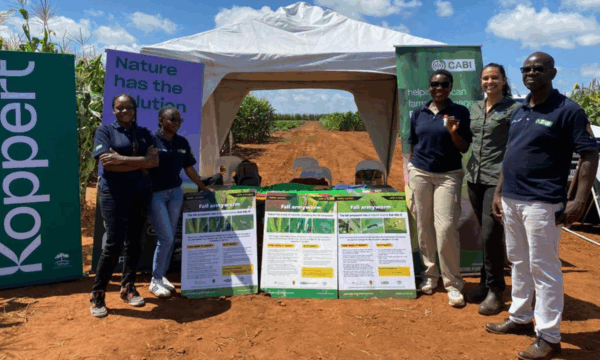
Invasive alien species (IAS) have devastating impacts on native biota, causing the decline or even extinction of native species, negatively affecting ecosystems. Invasive plants, animals, insects and microorganisms enter and establish in environments outside of their natural habitat. They reproduce rapidly, out-compete native species for food, water and space, and are one of the main causes of global biodiversity loss. Species can be introduced deliberately, through for example, fish farming, pet trade, horticulture, bio-control or unintentionally, through such means as land and water transportation, travel, and scientific research.
CABI, under its Action on Invasives programme, is working to manage the already existing and potential invasive species in Pakistan. Pest Management Decision Guides (PMDGs), through the Plantwise Knowledge Bank are practical, step-by-step tools for plant doctors and extension agents to give advice following the principles of integrated pest management (IPM).
For the management of invasive species, a one-day PMDG Writeshop was conducted by CABI under its Community Action work package and facilitated by CABI staff: Abdul Rehman, Dr. Kazam Ali, Dr Kauser Iqbal, Dr Umair Safdar, and Dr. Shakeel Ahmed at CABI’s Central West Asia (CWA) office in Rawalpindi last month. A total of 44 participants attended the workshop from 27 organisations and represented all the provinces of Pakistan, ranging from agriculture officers to directors, professors and University Pro Vice Chancellor, to extension officers working in the fields.
Mr Rehman explained the concept of PMDGs and later on facilitated the review of draft PMDGs for three potential invasive species of Pakistan namely: parthenium (Parthenium hysterophorus), tomato leafminer (Tuta absoluta) and fall armyworm (Spodoptera frugiperda). These draft PMDGs were edited after a detailed discussion with the participants and their valuable feedback were incorporated into the text of PMDGs for Pakistan.

The workshop offered a valuable opportunity for key Pakistani researchers and professionals to gain awareness on the efforts of CABI on a regional scale for invasive species management and to build a network with national scientists. By the end of the workshop there was a marked difference in opinion of most participants that it’s time to manage the invasive species at their earliest.
The workshop participants also visited the CABI office, experimental site for the management of parthenium and newly developed quarantine facility.
Would you like to collate PMDGs?
![]() You can collate relevant extension materials, complete with contents page for use in the field or in workshops like this one. The booklet builder on the Plantwise Knowledge Bank allows you to create quick booklets of PMDGs and Plantwise Factsheets for Farmers (PFFFs) which are relevant to or written in your country. Simply search a pest or crop on the Knowledge Bank, and where you see the booklet icon (left), you can click to add it to a PDF booklet to download and print.
You can collate relevant extension materials, complete with contents page for use in the field or in workshops like this one. The booklet builder on the Plantwise Knowledge Bank allows you to create quick booklets of PMDGs and Plantwise Factsheets for Farmers (PFFFs) which are relevant to or written in your country. Simply search a pest or crop on the Knowledge Bank, and where you see the booklet icon (left), you can click to add it to a PDF booklet to download and print.
Further Resources
1 Comment
Leave a Reply
Related News & Blogs
CABI-led study suggests women in Pakistan need greater access to information on parthenium weed
A new CABI-led study investigated smallholder farmers’ knowledge, attitudes and practices towards parthenium and biological control in Pakistan. The study brings attention to important gendered aspects of parthenium impact. It also highlights smallhold…
27 June 2025





Reblogged this on The Plantwise Blog.